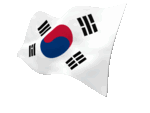Time and Newsweek
페이지 정보
본문

"Time" and "Newsweek", the two weekly news magazines in English, have a very unique as well as interesting relationship between them. Like twin sisters the two look extremely alike, go everywhere together, do the same work, wear the same size of clothes, and display similar temper and character.
But despite these seeming resemblances Time and Newsweek, or Newsweek and Time, are not on friendly terms with each other. Far from it. One competes fiercely with the other for the love of more readers, and we should be very careful not to be involved in the battle that is going on silently between the two camps. You had better not to be so open and frank in revealing your preference. You can be disliked or even despised by the lovers of the Time, if they find out you read the Newsweek instead, and vice versa.
For the supporters of Newsweek the title of my essay must be a displeasure and disappointing one. Why should Time always come first? Why not Newsweek and Time? Doesn't it sound better, more natural and dignified? I hear they protest in anger. But I feel I cannot help it. It has always been that way with me, although I read both of the magazines with equal love and pleasure. It is like saying "Ladies and Gentlemen," without paying much attention to and without putting more weight on the importance of the sex. Ladies and gentlemen are equally important, interesting and funny in whatever order they are placed, are they not?
But, there are some persistent persons, mostly students, who persistently and ignorantly ask which one is better. They know I read both of them, and think I am the right person who can answer this question with ease and honesty. When I say each has its own merits and characteristics, they would not be satisfied.
Now they become more specific. "Which one is more difficult(or easier) to read?" "Both," I reply. Disappointed in my rather disinterested attitude and neutral pose, they usually stop asking more questions, but I know they are not satisfied. They want to hear from an expert like me more decisive advice or judgement on the simple but very urgent problem that boggles their mind: which one is better, easier, more advantageous to start with?
Tired and bored with these boring and tiring questions and answers that continue endlessly, I felt a need to find out, or even invent an answer that would satisfy all at a stroke. And, eureka! It came one day from the TV advertisement of Coca-Cola and Pepsi-Cola. The two soft drinks, as we all know well, have the analogies and differences between them, and I have found, they can be aptly applied to the case of Time and Newsweek: Time is to Newsweek what Coca-Cola to Pepsi-Cola is. More questions?
For those who can read it, Time or Newsweek is a good source of world news, knowledge, information, and pleasure. For those who aspire to master English language, it provides challenging materials to struggle with. For the beginners, it is like a high mountain peak to climb up. Some buy it to read; some to study; and some to carry and display. Whatever the reasons and purposes they have, they know they should be seen with either of it.
Recently the demand for Time or Newsweek is so huge and enormous from the students that it has entered, against the strong opposition from the old professors, who are usually very conservative and also very critical of the journalistic writings, the sanctuary of the great works of the great writers, and is being used as a textbook in the department of English at some colleges and universities. If there be any professor who insists on teaching Shakespeare's Hamlet or Milton's Paradise Lost only, he will be regarded by the modern students as a nut who are really far behind the times, and who should subscribe to Time or Newsweek.
Time or Newsweek is more than a weekly news magazine for many of us Koreans. For some known and unknown reasons it has been assimilated into our life and culture, and taken deep root in our consciousness. Being a reader of it means much more than just being a reader of an English news magazine for the Americans or Englishmen. It means he is an intellectual, a highly educated person (usually in the United States), very successful in his career and profession, financially secure, a man respected by his wife and children, awed by his ignorant friends, a man who can enjoy some leisure time in this hellishly busy world. In short, if you have Time or Newsweek, or both of them, delivered to you every week, you have succeeded in your life. Time or Newsweek in your hand or on your desk is a symbol of success in Korea.
For a certain period of time in our recent history, these two magazines played a part inadvertently in our struggle for democracy and freedom of speech and expression. The news about Korea appeared in the magazines were mostly political ones that were very critical of and inimical to the autocratic government at that time. These news could not be published at all in our daily newspapers or in any magazines because of the strict censorship of the government. Ironically enough, we had to rely on foreign magazines to figure out what was taking place to us.
Soon the government began to censor Time and Newsweek. News about us in the magazines were invariably cut out by scissors, or completely blackened out by specially-made ink. We were dying of curiosity. We guessed wildly about the missing parts. Some held up the inked-out page, I heard, to the ultra-red light and some used special chemical solution to revive the disappeared letters. I went to the U.S.I.S in Seoul where I could read the intact copy with apprehension and thrill. I might be caught and sent to jail. It was a comically sad time indeed.
As a long and old friend of Time and Newsweek I am happy now to receive them every week with their bodies intact and whole. What makes me happier is that we are no longer an object of pity, ridicule, or a target of criticism in the eyes of the world. We are still making big news, but they are not so bad, sad, and depressing ones, as they always were in the past. I sincerely hope to see the time arrive when the news about Korea will fade away completely from the two worldly magazines, and finally there would be no news at all about us. As an old saying goes, "No news is good news."
(October 24, 1992)
- 이전글Once More to the River 21.01.13
- 다음글Who Has Seen The Wind? 21.01.13
댓글목록
등록된 댓글이 없습니다.








